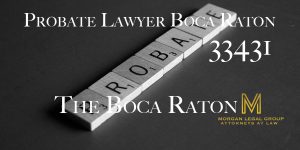Effective Strategies to Minimize Estate Taxes
Introduction
Estate planning is not just about passing on your assets; it’s also about ensuring that your heirs receive as much of your wealth as possible. One significant factor that can erode your legacy is estate taxes. These taxes can substantially reduce the value of your estate, leaving less for your loved ones. Fortunately, there are legal and strategic ways to minimize estate taxes, allowing you to preserve your wealth and provide a more substantial inheritance to your heirs.
In this comprehensive guide, we will explore effective strategies to minimize estate taxes. Keep in mind that estate tax laws can be complex and subject to change, so it’s essential to consult with experienced estate planning attorneys to create a tailored plan that aligns with your financial situation and goals.
Understanding Estate Taxes
Estate taxes, often referred to as inheritance taxes or death taxes, are taxes imposed on the transfer of a deceased individual’s assets to their heirs or beneficiaries. These taxes are typically assessed based on the total value of the estate at the time of the individual’s passing. Estate tax rates and exemptions can vary widely between jurisdictions, and they may change over time due to legislative decisions.
One crucial thing to note is that not all estates are subject to estate taxes. Many jurisdictions have exemption thresholds, which means that only estates exceeding a certain value are subject to taxation. For estates that do exceed the exemption threshold, the applicable tax rate is applied to the portion of the estate’s value that exceeds the threshold.
Effective Strategies to Minimize Estate Taxes
Now, let’s delve into the strategies that can help you minimize estate taxes and preserve your wealth for your heirs:
1. Gift Tax Exclusion
The gift tax exclusion allows you to gift a certain amount of money or property to individuals each year without incurring gift tax. As of the latest tax laws, this exclusion is quite generous. Gifting assets during your lifetime can reduce the overall value of your estate subject to estate tax. Consult with an attorney to understand the specific limits and rules governing gift tax exclusions in your jurisdiction.
2. Irrevocable Life Insurance Trust (ILIT)
An Irrevocable Life Insurance Trust (ILIT) is a trust specifically designed to hold a life insurance policy. When structured correctly, the death benefit from the policy can be excluded from your taxable estate. This strategy allows you to provide a tax-free inheritance to your heirs while still maintaining control over the policy during your lifetime.
3. Family Limited Partnership (FLP) or Family Limited Liability Company (LLC)
Creating a Family Limited Partnership (FLP) or Family Limited Liability Company (LLC) can be an effective way to transfer wealth to your heirs while retaining control over the assets. By gifting or selling shares in the FLP or LLC to your heirs, you can gradually reduce the taxable value of your estate. This strategy is particularly useful for family businesses or real estate holdings.
4. Qualified Personal Residence Trust (QPRT)
A Qualified Personal Residence Trust (QPRT) allows you to transfer your primary residence or vacation home into an irrevocable trust while retaining the right to reside in the property for a specified term. When the term ends, the property is no longer part of your taxable estate. This strategy can be advantageous for individuals with valuable real estate holdings.
5. Charitable Remainder Trust (CRT)
A Charitable Remainder Trust (CRT) allows you to donate assets to a charitable trust while retaining an income stream during your lifetime or a specified term. Upon your passing, the remaining assets are distributed to a charitable organization. CRTs offer tax benefits while supporting charitable causes.
6. Estate Freeze Techniques
Estate freeze techniques involve transferring appreciating assets out of your estate and into a trust or other vehicle. By “freezing” the value of these assets at their current worth, any future appreciation is excluded from your taxable estate. Common estate freeze techniques include Grantor Retained Annuity Trusts (GRATs) and Intentionally Defective Grantor Trusts (IDGTs).
7. Portability of the Estate Tax Exemption
The concept of portability allows a surviving spouse to inherit any unused portion of their deceased spouse’s estate tax exemption. This means that if your spouse passes away and their estate did not fully utilize their exemption, you can potentially add it to your own, effectively doubling the exemption amount. Proper estate planning can ensure that this benefit is maximized.
Consulting with Estate Planning Professionals
Effective estate tax planning often requires a combination of these strategies, tailored to your unique circumstances and goals. To create a comprehensive estate plan that minimizes taxes and safeguards your legacy, it’s crucial to work with experienced estate planning professionals.
An estate planning attorney, along with financial advisors and tax professionals, can help you navigate the complexities of estate tax laws, stay up-to-date with changing regulations, and develop a strategy that protects your heirs’ inheritance.
Conclusion
Minimizing estate taxes is a fundamental component of preserving your wealth for future generations. By implementing these and other proven strategies, you can ensure that your heirs receive a more substantial inheritance and that your legacy remains intact.
At Morgan Legal Group in Miami, our skilled estate planning attorneys are dedicated to helping individuals and families develop tax-efficient estate plans that align with their goals. Contact us today to begin the process of securing your financial legacy and providing for your heirs.








